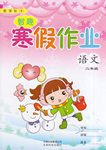题目内容
There are many times I feel close to going crazy in Beijing. The over-hooting horns and the dan?gerous driving of local drivers are slowly driving us cyclists to extinction,here in the bicycle capital of the world.
What keeps me conscious is my weekly session with some of Beijing's warmest souls. We meet at the English corner in the Chaoyang Library. There, all topics are open for discussion. We usually talk about family and business,two Chinese priorities across all age groups, I've discovered. There are always plenty of requests to explain European religion and culture. Some,however, like one of my older students,80-year-old Mr. Gou,prefer to sing in English.
Lately we've talked about the 60th anniversary celebrations and I'm lucky in the diversity of ages that I get a good sample of what China's thinking. Most look forward to the time off,some think it inconvenient ( for their offices being shut to make way for rehearsals ) and some worry about the cost of it.
I sometimes feel that even a 60-year-old China is still not very well known or understood. Foreign friends with little time to spare on business and tourist visits to Beijing complain about the similar things:aggressive driving, bad air and a lot of ostentatious displays of wealth such as big cars,paunches and loud shirts.
It's a shame, because those are the conspicuous minority. To know Beijing you have to make an effort to meet and talk to the majority―the likes of retired Doctor Rose,who runs the English corner,or Mr. Tang,the retired railway station inspector. These are friendly, knowable folks with all the patience possible to explain and share China with a curious foreigner. I feel very lucky to have them to talk and listen to.
They'll likely never~~or rarely―step into a Starbucks. Their means are modest and they don't have any flashy cars to park on the footpath. No,but they'll teach you priceless,disappearing Beijing knowledge and crafts. They,11 invite you to eat jiaozi and play shuttlecock. And on October 1 ,I marked the big 60th birthday with them, the ordinary,kind people of Beijing.
( ) 8. Who runs the English corner according to the passage?
A. Mr. Tang. B. Rose. C. Mr. Gou. D. The writer.
( ) 9. Which of the following is true of Beijing?
A. The drivers in Beijing drive terribly.
B. People at the English corner talk about European religion and culture every day.
C. Foreign friends spare no time on business in Beijing.
D. Only when you talk to people can you know Beijing better.
( ) 10. What can we learn about the 60th anniversary celebrations?
A. The writer can predict what China's thinking.
B. Most people think the 60th anniversary celebration worthless.
C. Some people may be concerned about the side-effects of the 60th anniversary cel?ebrations.
D. People will teach you priceless, disappearing Beijing knowledge and crafts.
( ) 11. The underlined word "ostentatious" in Paragraph 4 means " ”.
A. jealous B. expensive C. cheap D. showy
( ) 12. Which of the following is the best title for the passage?
A. Hidden Treasure B. Proud People
C. Priceless Love D. Potential Ability
8. B细节理解题。从倒数第二段的第二句可知答案。
9. A细节理解题。从第一段的第二句可知:北京司机危险的车技使人们逐渐不再骑自行车。
10. C细节理解题。从第三段的"some think it in?convenient (for their offices being shut to make way for rehearsals) and some worry about the cost of it." 可知答案。
11. D词义猜测题。从本句的"big cars,paunches and loud shirts."可知是指对财富的炫耀。
12.A主旨大意题 文章主要介绍了只有通过和北京市民进行更多的交流和沟通,才能真正了解北京,故题目Hidden Treasure(暗藏的珍宝) 符合文章主旨。

 智趣寒假作业云南科技出版社系列答案
智趣寒假作业云南科技出版社系列答案